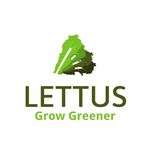Join Our Efforts
Lettus Grow Greener is dedicated to reducing food waste and promoting sustainable practices. Discover our initiatives and see how you can make a difference in your community.
Our Initiatives
Explore our impactful initiatives aimed at sustainability and reducing food waste.
about us
Through these initiatives, we aim to foster a culture of sustainability, empowering communities to make informed choices that benefit their health, the local economy, and the planet.
Sustainable Waste Management: Reusing Plastic Boxes
Our Approach
Reusable Plastic Boxes: Instead of using single-use plastic bags for food waste, we provide households with durable plastic boxes. These boxes are designed to be washed and reused, significantly reducing plastic waste.
Easy Maintenance: Our plastic boxes are easy to clean and maintain, making it simple for families to manage their food waste responsibly. By washing and reusing these boxes, households can minimize their environmental footprint.
Convenient Collection: We offer a convenient collection service for these plastic boxes, ensuring that food waste is properly disposed of without contributing to landfill waste. This system encourages households to separate their organic waste efficiently.
Educational Support: We provide educational resources and tips on how to effectively use these plastic boxes for waste collection. Our goal is to empower families to adopt sustainable practices that can be easily integrated into their daily routines.
Community Impact: By promoting the use of reusable plastic boxes, we aim to foster a culture of sustainability within our communities. Together, we can reduce plastic waste and contribute to a healthier planet.
The Food Cycle: Grow, Eat, Compost
1. Grow
Home Gardening: Growing your own food is a rewarding way to ensure fresh, nutritious produce while reducing your carbon footprint. Whether you have a backyard garden, a balcony, or even indoor pots, cultivating plants can provide you with a sustainable source of food.
Community Gardens: Join local community gardens to collaborate with others in growing food. This not only fosters community spirit but also promotes sustainable practices and food security.
2. Eat
Mindful Consumption: Make conscious choices about the food you purchase and consume. Plan meals, buy only what you need, and be creative with leftovers to ensure that food doesn’t go to waste.
Support Local Producers: Choose to buy from local farmers and markets, which helps reduce transportation emissions and supports the local economy. Fresh, seasonal produce often has a lower environmental impact.
3. Compost
Transforming Waste: When food scraps and peels are no longer suitable for consumption, composting is a great way to recycle them. Composting turns organic waste into nutrient-rich soil that can nourish future plants.
Sustainable Practices: By composting, you reduce the amount of waste sent to landfills, lower greenhouse gas emissions, and contribute to a circular economy where food waste is repurposed into valuable resources.
Training for Kids
What We Do
Interactive Workshops: We conduct engaging workshops for students to learn about the importance of reducing food waste. Through hands-on activities, they discover how food is grown, harvested, and the journey it takes to reach their plates.
Food Waste Education: Our curriculum includes lessons on the environmental and economic impacts of food waste, helping students understand why it’s crucial to minimize waste at home and in their schools.
Practical Solutions: We teach kids practical strategies for reducing food waste, such as meal planning, proper food storage, and creative cooking with leftovers.
Community Projects: Students participate in community service projects that focus on food recovery and composting, allowing them to apply what they’ve learned while making a difference in their community.
Empowerment through Action: Our goal is to empower students to become advocates for sustainability. We encourage them to share their knowledge with family and friends, fostering a culture of awareness and responsibility.
Household Segregation: Promoting Sustainable Practices
What We Do
Educational Campaigns: We run awareness campaigns to inform households about the importance of waste segregation. By highlighting the benefits of separating organic, recyclable, and non-recyclable waste, we encourage responsible disposal habits.
Workshops and Training: We offer workshops for families on how to properly segregate waste at home. These sessions include practical tips on setting up designated bins, understanding local recycling guidelines, and composting food scraps.
Resource Distribution: We provide households with resources, such as guides and checklists, to help them implement effective waste segregation practices. Our materials are designed to be easy to understand and follow.
Community Engagement: We organize community events that bring families together to learn about waste management. These events often include demonstrations on composting and recycling, fostering a sense of community responsibility.
Monitoring and Support: We support households in their segregation efforts by offering follow-up resources and tips to ensure long-term success. Our goal is to create a culture of sustainability that lasts.
Addressing Restaurant Food Waste
How We Help Restaurants Reduce Food Waste
Waste Audits: We conduct comprehensive waste audits to help restaurants identify areas where food waste can be reduced. By analyzing waste patterns, we provide actionable insights to optimize operations.
Food Recovery Initiatives: We connect restaurants with local food banks and charities to facilitate the donation of surplus food, ensuring that edible food reaches those in need rather than ending up in landfills.
Staff Training: We offer training programs for restaurant staff on portion control, inventory management, and creative menu planning to reduce overproduction and minimize waste.
Composting Programs: We assist restaurants in implementing composting systems for food scraps, turning waste into valuable compost that can enrich local soil.
Community Engagement: We encourage restaurants to engage their customers in sustainability efforts, raising awareness about food waste and promoting responsible consumption.
Collaborating with Farmers
ood Recovery Programs: We help farmers recover surplus produce that would otherwise go to waste, connecting them with local food banks and community organizations.
Composting Solutions: We provide resources and training to farmers on composting techniques, turning food scraps into nutrient-rich soil amendments that enhance crop growth.
Education and Workshops: We offer workshops for farmers on sustainable practices, helping them understand the economic and environmental benefits of reducing food waste.
Innovative Distribution: We assist farmers in finding markets for imperfect or surplus produce, ensuring that every harvest is valued and utilized.
Community Voices
Hear from our community! Our initiatives have made a significant difference in reducing food waste and promoting sustainability.
As the founder of Lettus Grow Greener, I am passionate about creating sustainable solutions that empower communities to reduce food waste and support local agriculture. Our mission is to promote mindful consumption, encourage home gardening, and facilitate composting, all while fostering a healthier planet for future generations.
sarah iskandaraniFounder
Journalist and advocate for sustainable practices, currently contributing her expertise to Lettus Grow Greener. With a passion for environmental issues and local food systems
Diana SerhanJournalist
Monitoring and evaluating the impact of our programs, using data to inform future strategies and improve outreach efforts.
Tarek HasounaData Analysis




